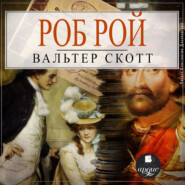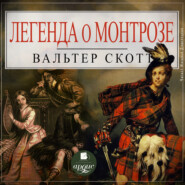По всем вопросам обращайтесь на: info@litportal.ru
(©) 2003-2024.
✖
The Heart of Mid-Lothian, Complete
Настройки чтения
Размер шрифта
Высота строк
Поля
The author has stated, in the preface to the Chronicles of the Canongate, 1827, that he received from an anonymous correspondent an account of the incident upon which the following story is founded. He is now at liberty to say, that the information was conveyed to him by a late amiable and ingenious lady, whose wit and power of remarking and judging of character still survive in the memory of her friends. Her maiden name was Miss Helen Lawson, of Girthhead, and she was wife of Thomas Goldie, Esq. of Craigmuie, Commissary of Dumfries.
Her communication was in these words:—
“I had taken for summer lodgings a cottage near the old Abbey of Lincluden. It had formerly been inhabited by a lady who had pleasure in embellishing cottages, which she found perhaps homely and even poor enough; mine, therefore, possessed many marks of taste and elegance unusual in this species of habitation in Scotland, where a cottage is literally what its name declares.
“From my cottage door I had a partial view of the old Abbey before mentioned; some of the highest arches were seen over, and some through, the trees scattered along a lane which led down to the ruin, and the strange fantastic shapes of almost all those old ashes accorded wonderfully well with the building they at once shaded and ornamented.
“The Abbey itself from my door was almost on a level with the cottage; but on coming to the end of the lane, it was discovered to be situated on a high perpendicular bank, at the foot of which run the clear waters of the Cluden, where they hasten to join the sweeping Nith,
‘Whose distant roaring swells and fa’s.’
As my kitchen and parlour were not very far distant, I one day went in to purchase some chickens from a person I heard offering them for sale. It was a little, rather stout-looking woman, who seemed to be between seventy and eighty years of age; she was almost covered with a tartan plaid, and her cap had over it a black silk hood, tied under the chin, a piece of dress still much in use among elderly women of that rank of life in Scotland; her eyes were dark, and remarkably lively and intelligent; I entered into conversation with her, and began by asking how she maintained herself, etc.
“She said that in winter she footed stockings, that is, knit feet to country-people’s stockings, which bears about the same relation to stocking-knitting that cobbling does to shoe-making, and is of course both less profitable and less dignified; she likewise taught a few children to read, and in summer she whiles reared a few chickens.
“I said I could venture to guess from her face she had never been married. She laughed heartily at this, and said, ‘I maun hae the queerest face that ever was seen, that ye could guess that. Now, do tell me, madam, how ye cam to think sae?’ I told her it was from her cheerful disengaged countenance. She said, ‘Mem, have ye na far mair reason to be happy than me, wi’ a gude husband and a fine family o’ bairns, and plenty o’ everything? for me, I’m the puirest o’ a’ puir bodies, and can hardly contrive to keep mysell alive in a’ the wee bits o’ ways I hae tell’t ye.’ After some more conversation, during which I was more and more pleased with the old womans sensible conversation, and the naivete of her remarks, she rose to go away, when I asked her name. Her countenance suddenly clouded, and she said gravely, rather colouring, ‘My name is Helen Walker; but your husband kens weel about me.’
“In the evening I related how much I had been pleased, and inquired what was extraordinary in the history of the poor woman. Mr. – said, there were perhaps few more remarkable people than Helen Walker. She had been left an orphan, with the charge of a sister considerably younger than herself, and who was educated and maintained by her exertions. Attached to herby so many ties, therefore, it will not be easy to conceive her feelings, when she found that this only sister must be tried by the laws of her country for child-murder, and upon being called as principal witness against her. The counsel for the prisoner told Helen, that if she could declare that her sister had made any preparations, however slight, or had given her any intimation on the subject, that such a statement would save her sister’s life, as she was the principal witness against her. Helen said, ‘It is impossible for me to swear to a falsehood; and, whatever may be the consequence, I will give my oath according to my conscience.’
“The trial came on, and the sister was found guilty and condemned; but in Scotland six weeks must elapse between the sentence and the execution, and Helen Walker availed herself of it. The very day of her sister’s condemnation she got a petition drawn, stating the peculiar circumstances of the case, and that very night set out on foot to London.
“Without introduction or recommendation, with her simple (perhaps ill-expressed) petition, drawn up by some inferior clerk of the court, she presented herself, in her tartan plaid and country attire, to the late Duke of Argyle, who immediately procured the pardon she petitioned for, and Helen returned with it on foot just in time to save her sister.
“I was so strongly interested by this narrative, that I determined immediately to prosecute my acquaintance with Helen Walker; but as I was to leave the country next day, I was obliged to defer it till my return in spring, when the first walk I took was to Helen Walker’s cottage.
“She had died a short time before. My regret was extreme, and I endeavoured to obtain some account of Helen from an old woman who inhabited the other end of her cottage. I inquired if Helen ever spoke of her past history—her journey to London, etc., ‘Na,’ the old woman said, ‘Helen was a wily body, and whene’er ony o’ the neebors asked anything about it, she aye turned the conversation.’
“In short, every answer I received only tended to increase my regret, and raise my opinion of Helen Walker, who could unite so much prudence with so much heroic virtue.”
This narrative was inclosed in the following letter to the author, without date or signature—
“Sir,—The occurrence just related happened to me twenty-six years ago. Helen Walker lies buried in the churchyard of Irongray, about six miles from Dumfries. I once proposed that a small monument should have been erected to commemorate so remarkable a character, but I now prefer leaving it to you to perpetuate her memory in a more durable manner.”
The reader is now able to judge how far the author has improved upon, or fallen short of, the pleasing and interesting sketch of high principle and steady affection displayed by Helen Walker, the prototype of the fictitious Jeanie Deans. Mrs. Goldie was unfortunately dead before the author had given his name to these volumes, so he lost all opportunity of thanking that lady for her highly valuable communication. But her daughter, Miss Goldie, obliged him with the following additional information:—
“Mrs. Goldie endeavoured to collect further particulars of Helen Walker, particularly concerning her journey to London, but found this nearly impossible; as the natural dignity of her character, and a high sense of family respectability, made her so indissolubly connect her sister’s disgrace with her own exertions, that none of her neighbours durst ever question her upon the subject. One old woman, a distant relation of Helen’s, and who is still living, says she worked an harvest with her, but that she never ventured to ask her about her sister’s trial, or her journey to London; ‘Helen,’ she added, ‘was a lofty body, and used a high style o’ language.’ The same old woman says, that every year Helen received a cheese from her sister, who lived at Whitehaven, and that she always sent a liberal portion of it to herself, or to her father’s family. This fact, though trivial in itself, strongly marks the affection subsisting between the two sisters, and the complete conviction on the mind of the criminal that her sister had acted solely from high principle, not from any want of feeling, which another small but characteristic trait will further illustrate. A gentleman, a relation of Mrs. Goldie’s, who happened to be travelling in the North of England, on coming to a small inn, was shown into the parlour by a female servant, who, after cautiously shutting the door, said, ‘Sir, I’m Nelly Walker’s sister.’ Thus practically showing that she considered her sister as better known by her high conduct than even herself by a different kind of celebrity.
“Mrs. Goldie was extremely anxious to have a tombstone and an inscription upon it erected in Irongray Churchyard; and if Sir Walter Scott will condescend to write the last, a little subscription could be easily raised in the immediate neighbourhood, and Mrs. Goldie’s wish be thus fulfilled.”
It is scarcely necessary to add that the request of Miss Goldie will be most willingly complied with, and without the necessity of any tax on the public.[2 - [Note B. Tombstone to Helen Walker.]] Nor is there much occasion to repeat how much the author conceives himself obliged to his unknown correspondent, who thus supplied him with a theme affording such a pleasing view of the moral dignity of virtue, though unaided by birth, beauty, or talent. If the picture has suffered in the execution, it is from the failure of the author’s powers to present in detail the same simple and striking portrait exhibited in Mrs. Goldie’s letter.
Abbotsford, April 1, 1830.
POSTSCRIPT
Although it would be impossible to add much to Mrs. Goldie’s picturesque and most interesting account of Helen Walker, the prototype of the imaginary Jeanie Deans, the Editor may be pardoned for introducing two or three anecdotes respecting that excellent person, which he has collected from a volume entitled, Sketches from Nature, by John M’Diarmid, a gentleman who conducts an able provincial paper in the town of Dumfries.
Helen was the daughter of a small farmer in a place called Dalwhairn, in the parish of Irongray; where, after the death of her father, she continued, with the unassuming piety of a Scottish peasant, to support her mother by her own unremitted labour and privations; a case so common, that even yet, I am proud to say, few of my countrywomen would shrink from the duty.
Helen Walker was held among her equals pensy, that is, proud or conceited; but the facts brought to prove this accusation seem only to evince a strength of character superior to those around her. Thus it was remarked, that when it thundered, she went with her work and her Bible to the front of the cottage, alleging that the Almighty could smite in the city as well as in the field.
Mr. M’Diarmid mentions more particularly the misfortune of her sister, which he supposes to have taken place previous to 1736. Helen Walker, declining every proposal of saving her relation’s life at the expense of truth, borrowed a sum of money sufficient for her journey, walked the whole distance to London barefoot, and made her way to John Duke of Argyle. She was heard to say, that, by the Almighty strength, she had been enabled to meet the Duke at the most critical moment, which, if lost, would have caused the inevitable forfeiture of her sister’s life.
Isabella, or Tibby Walker, saved from the fate which impended over her, was married by the person who had wronged her (named Waugh), and lived happily for great part of a century, uniformly acknowledging the extraordinary affection to which she owed her preservation.
Helen Walker died about the end of the year 1791, and her remains are interred in the churchyard of her native parish of Irongray, in a romantic cemetery on the banks of the Cairn. That a character so distinguished for her undaunted love of virtue, lived and died in poverty, if not want, serves only to show us how insignificant, in the sight of Heaven, are our principal objects of ambition upon earth.
INTRODUCTORY
So down thy hill, romantic Ashbourn, glides
The Derby dilly, carrying six insides.
Frere.
The times have changed in nothing more (we follow as we were wont the manuscript of Peter Pattieson) than in the rapid conveyance of intelligence and communication betwixt one part of Scotland and another. It is not above twenty or thirty years, according to the evidence of many credible witnesses now alive, since a little miserable horse-cart, performing with difficulty a journey of thirty miles per diem, carried our mails from the capital of Scotland to its extremity. Nor was Scotland much more deficient in these accommodations than our rich sister had been about eighty years before. Fielding, in his Tom Jones, and Farquhar, in a little farce called the Stage-Coach, have ridiculed the slowness of these vehicles of public accommodation. According to the latter authority, the highest bribe could only induce the coachman to promise to anticipate by half-an-hour the usual time of his arrival at the Bull and Mouth.
But in both countries these ancient, slow, and sure modes of conveyance are now alike unknown; mail-coach races against mail-coach, and high-flyer against high-flyer, through the most remote districts of Britain. And in our village alone, three post-coaches, and four coaches with men armed, and in scarlet cassocks, thunder through the streets each day, and rival in brilliancy and noise the invention of the celebrated tyrant:—
Demens, qui nimbos et non imitabile fulmen,
AEre et cornipedum pulsu, simularat, equorum.
Now and then, to complete the resemblance, and to correct the presumption of the venturous charioteers, it does happen that the career of these dashing rivals of Salmoneus meets with as undesirable and violent a termination as that of their prototype. It is on such occasions that the Insides and Outsides, to use the appropriate vehicular phrases, have reason to rue the exchange of the slow and safe motion of the ancient Fly-coaches, which, compared with the chariots of Mr. Palmer, so ill deserve the name. The ancient vehicle used to settle quietly down, like a ship scuttled and left to sink by the gradual influx of the waters, while the modern is smashed to pieces with the velocity of the same vessel hurled against breakers, or rather with the fury of a bomb bursting at the conclusion of its career through the air. The late ingenious Mr. Pennant, whose humour it was to set his face in stern opposition to these speedy conveyances, had collected, I have heard, a formidable list of such casualties, which, joined to the imposition of innkeepers, whose charges the passengers had no time to dispute, the sauciness of the coachman, and the uncontrolled and despotic authority of the tyrant called the guard, held forth a picture of horror, to which murder, theft, fraud, and peculation, lent all their dark colouring. But that which gratifies the impatience of the human disposition will be practised in the teeth of danger, and in defiance of admonition; and, in despite of the Cambrian antiquary, mail-coaches not only roll their thunders round the base of Penman-Maur and Cader-Idris, but
Frighted Skiddaw hears afar
The rattling of the unscythed car.
And perhaps the echoes of Ben Nevis may soon be awakened by the bugle, not of a warlike chieftain, but of the guard of a mail-coach.
It was a fine summer day, and our little school had obtained a half-holiday, by the intercession of a good-humoured visitor.[3 - His honour Gilbert Goslinn of Gandercleugh; for I love to be precise in matters of importance.—J. C.]
I expected by the coach a new number of an interesting periodical publication, and walked forward on the highway to meet it, with the impatience which Cowper has described as actuating the resident in the country when longing for intelligence from the mart of news.—
The grand debate,
The popular harangue,—the tart reply,—
The logic, and the wisdom, and the wit,
And the loud laugh,—I long to know them all;—
I burn to set the imprisoned wranglers free,
And give them voice and utterance again.
It was with such feelings that I eyed the approach of the new coach, lately established on our road, and known by the name of the Somerset, which, to say truth, possesses some interest for me, even when it conveys no such important information. The distant tremulous sound of its wheels was heard just as I gained the summit of the gentle ascent, called the Goslin-brae, from which you command an extensive view down the valley of the river Gander. The public road, which comes up the side of that stream, and crosses it at a bridge about a quarter of a mile from the place where I was standing, runs partly through enclosures and plantations, and partly through open pasture land. It is a childish amusement perhaps,—but my life has been spent with children, and why should not my pleasures be like theirs?—childish as it is then, I must own I have had great pleasure in watching the approach of the carriage, where the openings of the road permit it to be seen. The gay glancing of the equipage, its diminished and toy-like appearance at a distance, contrasted with the rapidity of its motion, its appearance and disappearance at intervals, and the progressively increasing sounds that announce its nearer approach, have all to the idle and listless spectator, who has nothing more important to attend to, something of awakening interest. The ridicule may attach to me, which is flung upon many an honest citizen, who watches from the window of his villa the passage of the stage-coach; but it is a very natural source of amusement notwithstanding, and many of those who join in the laugh are perhaps not unused to resort to it in secret.
On the present occasion, however, fate had decreed that I should not enjoy the consummation of the amusement by seeing the coach rattle past me as I sat on the turf, and hearing the hoarse grating voice of the guard as he skimmed forth for my grasp the expected packet, without the carriage checking its course for an instant. I had seen the vehicle thunder down the hill that leads to the bridge with more than its usual impetuosity, glittering all the while by flashes from a cloudy tabernacle of the dust which it had raised, and leaving a train behind it on the road resembling a wreath of summer mist. But it did not appear on the top of the nearer bank within the usual space of three minutes, which frequent observation had enabled me to ascertain was the medium time for crossing the bridge and mounting the ascent. When double that space had elapsed, I became alarmed, and walked hastily forward. As I came in sight of the bridge, the cause of delay was too manifest, for the Somerset had made a summerset in good earnest, and overturned so completely, that it was literally resting upon the ground, with the roof undermost, and the four wheels in the air. The “exertions of the guard and coachman,” both of whom were gratefully commemorated in the newspapers, having succeeded in disentangling the horses by cutting the harness, were now proceeding to extricate the insides by a sort of summary and Caesarean process of delivery, forcing the hinges from one of the doors which they could not open otherwise. In this manner were two disconsolate damsels set at liberty from the womb of the leathern conveniency. As they immediately began to settle their clothes, which were a little deranged, as may be presumed, I concluded they had received no injury, and did not venture to obtrude my services at their toilette, for which, I understand, I have since been reflected upon by the fair sufferers. The outsides, who must have been discharged from their elevated situation by a shock resembling the springing of a mine, escaped, nevertheless, with the usual allowance of scratches and bruises, excepting three, who, having been pitched into the river Gander, were dimly seen contending with the tide like the relics of AEneas’s shipwreck,—
Rari apparent mantes in gurgite vasto.
I applied my poor exertions where they seemed to be most needed, and with the assistance of one or two of the company who had escaped unhurt, easily succeeded in fishing out two of the unfortunate passengers, who were stout active young fellows; and, but for the preposterous length of their greatcoats, and the equally fashionable latitude and longitude of their Wellington trousers, would have required little assistance from any one. The third was sickly and elderly, and might have perished but for the efforts used to preserve him.
When the two greatcoated gentlemen had extricated themselves from the river, and shaken their ears like huge water-dogs, a violent altercation ensued betwixt them and the coachman and guard, concerning the cause of their overthrow. In the course of the squabble, I observed that both my new acquaintances belonged to the law, and that their professional sharpness was likely to prove an overmatch for the surly and official tone of the guardians of the vehicle. The dispute ended in the guard assuring the passengers that they should have seats in a heavy coach which would pass that spot in less than half-an-hour, provided it were not full. Chance seemed to favour this arrangement, for when the expected vehicle, arrived, there were only two places occupied in a carriage which professed to carry six. The two ladies who had been disinterred out of the fallen vehicle were readily admitted, but positive objections were stated by those previously in possession to the admittance of the two lawyers, whose wetted garments being much of the nature of well-soaked sponges, there was every reason to believe they would refund a considerable part of the water they had collected, to the inconvenience of their fellow-passengers. On the other hand, the lawyers rejected a seat on the roof, alleging that they had only taken that station for pleasure for one stage, but were entitled in all respects to free egress and regress from the interior, to which their contract positively referred. After some altercation, in which something was said upon the edict Nautae caupones stabularii, the coach went off, leaving the learned gentlemen to abide by their action of damages.

















